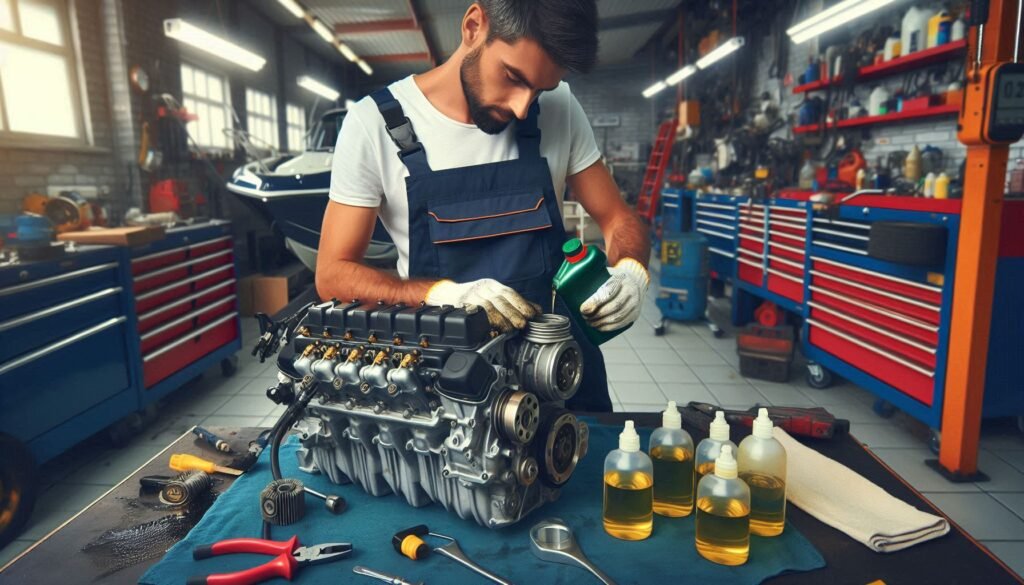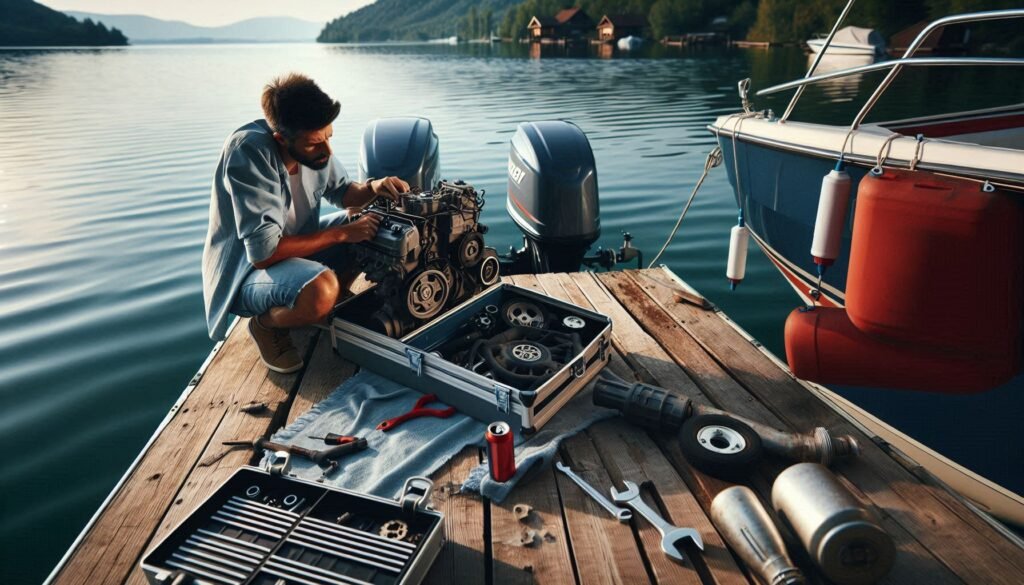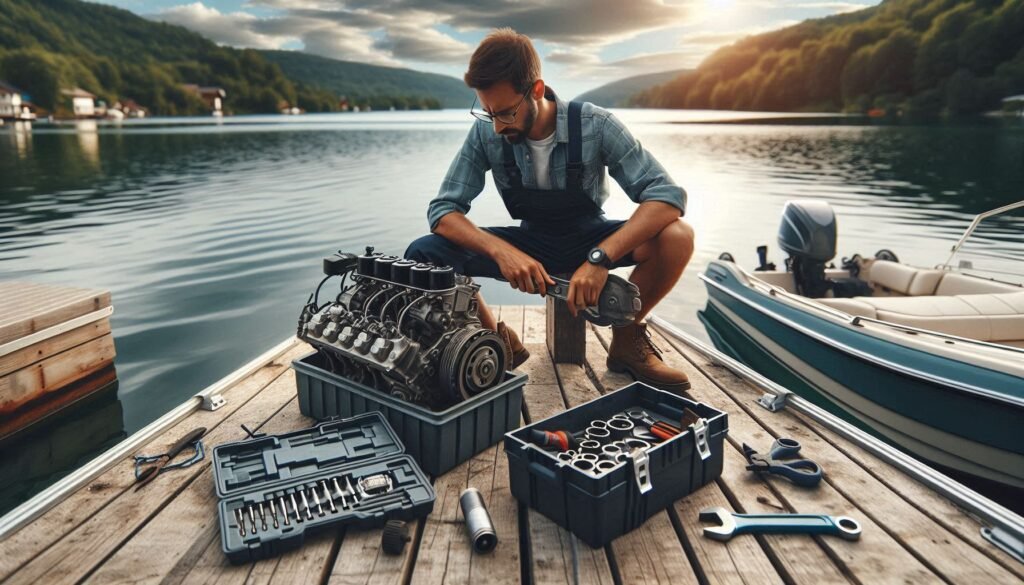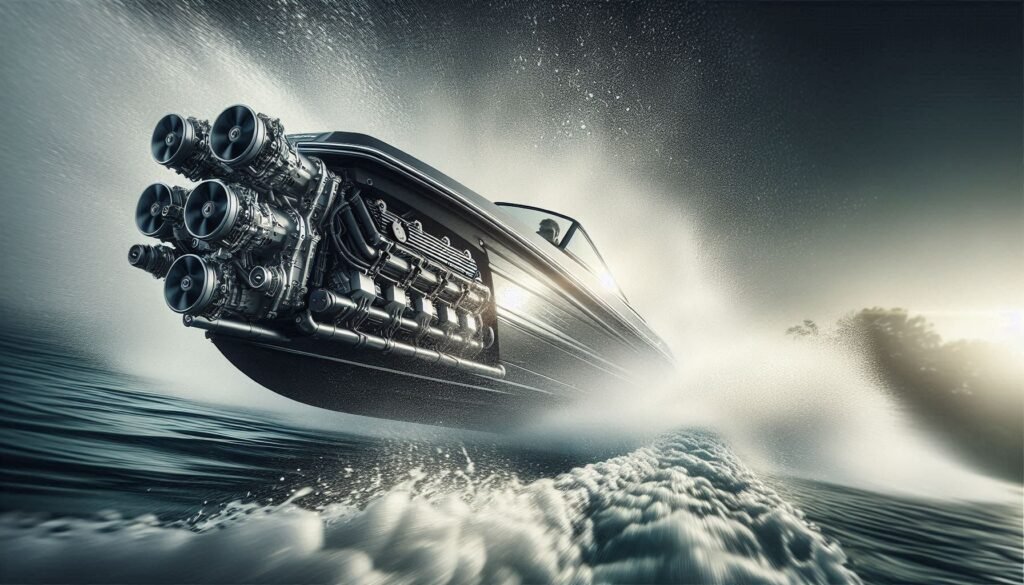Boating is more than a hobby; it’s a passion that brings joy, adventure, and a sense of freedom. However, to keep the waters smooth and the journeys safe, maintaining your boat’s engine is crucial. This comprehensive guide will delve into the essentials of boat engine maintenance and troubleshooting, ensuring your vessel remains in peak condition and your adventures are uninterrupted.
Understanding Boat Engine Maintenance and Troubleshooting
The Basics of Boat Engine Maintenance and Troubleshooting
Boat engines, whether inboard or outboard, share similarities with car engines. They operate on the principle of internal combustion, where fuel and air mix, ignite and produce power. Key components include:
- Engine Block: Houses the cylinders where combustion occurs.
- Pistons: Move up and down within the cylinders.
- Cylinder Head: Contains spark plugs and valves.
- Crankshaft: Converts the piston’s linear motion into rotational motion.
- Camshaft: Controls the opening and closing of valves.
Understanding these components helps in diagnosing and addressing potential issues.
Types of Boat Engine Maintenance and Troubleshooting
There are three primary types of boat engines:
- Outboard Engines: Mounted externally, combining the motor, gearbox, and propeller in one unit. Ideal for smaller boats.
- Inboard Engines: Located inside the hull, offering better weight distribution and performance for larger vessels.
- Sterndrive Engines: A hybrid of inboard and outboard, with the engine inside and the drive unit outside.
Each type has its advantages and specific maintenance needs.

Routine: The Lifeline of Boat Engine Maintenance and Troubleshooting
Regular Oil Changes
Oil lubricates and cools the engine, preventing wear and overheating. Regular oil changes are essential to maintain engine health. Dirty or old oil can lead to increased friction and potential engine damage.
Filter Replacements
Fuel and oil filters prevent contaminants from entering the engine. Regularly replacing these filters ensures clean fuel and oil flow, optimizing engine performance.
Cooling System Checks
The cooling system prevents the engine from overheating. Regularly inspect coolant levels, hoses, and the radiator. Ensure the water pump and thermostat are functioning correctly.
Spark Plug Maintenance
Spark plugs ignite the fuel-air mixture in the engine. Worn or dirty spark plugs can cause misfires and reduced performance. Regularly check and replace spark plugs as needed.
Propeller Inspections
The propeller affects the boat’s speed and fuel efficiency. Inspect for damage or wear and ensure it is the correct size for your boat. A well-maintained propeller enhances performance and reduces fuel consumption.
Common Boat Engine Maintenance and Troubleshooting Problems and Solutions
Starting Failures
If your engine fails to start, check the battery connections, fuel supply, and spark plugs. Ensure the choke is functioning correctly and that the fuel is not contaminated.
Overheating Issues
Overheating can be caused by low coolant levels, blocked water intakes, or a faulty water pump. Immediately shut down the engine, allow it to cool, and inspect for visible issues. Regular maintenance of the cooling system can prevent overheating.
Excessive Fuel Consumption
High fuel consumption can result from dirty air filters, faulty spark plugs, or incorrect engine timing. Regular inspections and maintenance of these components can improve fuel efficiency.
Power Loss
Power loss can be due to a damaged propeller, fuel issues, or engine misfires. Inspect the propeller, check fuel quality, and ensure the ignition system is functioning correctly.
Advanced Boat Engine Troubleshooting Techniques
Engine Diagnostics
Modern boat engines often come with diagnostic systems that can identify issues. Learning to use these systems can save time and money. Diagnostic tools can read error codes and provide insights into engine performance.
Compression Testing
Compression testing measures the pressure in the engine cylinders. Low compression can indicate worn piston rings or valves. Regular compression tests can help identify potential issues early.
Fuel System Inspections
Inspect fuel lines, tanks, and injectors for leaks, blockages, or wear. Clean fuel injectors and replace damaged components to ensure optimal fuel flow.
Enhancing Engine Performance
Upgrading Components
Consider upgrading to high-performance parts, such as better spark plugs, fuel injectors, or propellers. These upgrades can enhance speed, efficiency, and overall performance.
Regular Tune-Ups
Regular tune-ups, including adjusting the engine timing and cleaning the carburetor, can keep your engine running smoothly. Tune-ups optimize performance and extend engine life.
Weight Management
Reducing unnecessary weight on your boat can improve speed and fuel efficiency. Ensure even weight distribution for better handling and performance.
Safety Precautions and Best Practices for Boat Engine Maintenance and Troubleshooting
Pre-Departure Checks
Before setting out, inspect the hull, engine, and safety equipment. Ensure life jackets, fire extinguishers, and flares are onboard and in good condition.
Weather Awareness
Always check the weather forecast before heading out. Be prepared for sudden changes and have a plan in place for adverse conditions.
Emergency Preparedness
Have a well-stocked emergency kit, including tools, spare parts, and first aid supplies. Know how to perform basic repairs and have contact information for professional assistance.
Professional Maintenance and Repairs
When to Seek Professional Help
Some issues require professional expertise. If you encounter persistent problems or are unsure of the cause, consult a professional mechanic. Regular professional inspections can catch issues you might miss.
Choosing a Reliable Service
When selecting a repair service, look for experience, certifications, and positive customer reviews. Transparent pricing and good communication are also important factors.
Conclusion: The Emotional Connection to Your Boat
Maintaining your boat’s engine is more than a technical task; it’s an emotional investment in your passion for boating. Each maintenance task, each repair, is a step towards ensuring your vessel is ready for the adventures that await. By understanding your engine, performing regular maintenance, and addressing issues promptly, you can enjoy countless hours on the water, creating memories that last a lifetime. At Engine Boat Services, we understand the bond between a boat and its owner. Our commitment is to help you keep that bond strong, ensuring your boat is always ready for the next journey. For more information on how we can assist with your marine needs, visit our website at engineboatservices.com.
Related Searches:
- Boat engine maintenance tips
- Troubleshooting boat engine problems
- Enhancing boat performance
- Marine engine care





